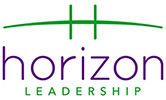In our work, we coach individual leaders and teams. Regardless of what the focus of the coaching, all roads eventually lead to trust. And so, this has become a signature of the work we do with our clients.
Definition: “...trust is a pragmatic, tangible, actionable asset that you can create much faster than you probably think possible. Simply put, trust means confidence...When you trust people you have confidence in them – in their integrity and in their abilities.”
Bottom-line – trust is an asset that can be developed when we are intentional about it.
When we work with individual leaders, we focus on their leadership impact. We help them become more aware of their strengths, work with their limiting beliefs, identify ways to manage their weaknesses, and connect them with their values and passions. All of this builds confidence and strong self esteem – essential qualities for leaders. In the process, they build trust in themselves. That is the first level of trust. Without trust of self, it’s impossible to create trust in relationships. Leaders can only inspire trust within their teams, their organization, their customers/clients and the marketplace if they trust themselves.
With teams, it’s clear that high performance is directly connected to trust. Stephen M.R. Covey, in his book The Speed of Trust has identified 13 behaviours of relationship trust. The behaviours are character and competency based – how we “be” and what we “do”. To create trust in relationships, we must demonstrate the 13 behaviours CONSISTENTLY.
When trust exists in teams, organizations thrive. The simple economic equation is that when trust is high, speed is high and cost is low. So if trust is good for the bottom-line how do we create it in teams?
Here’s what we’ve learned about working with trust and teams:
- Trust work is slow work. You need to set the right tone for the conversation about trust. Each individual has their own perspective on trust. The diversity of experiences and beliefs related to trust must be considered. Start the conversation with storytelling. Until each person can talk about trust from their perspective, you can’t do the work at a team level.
- Identify the primary culture of trust. Some teams value productivity and getting things done; they tilt to more focus on competency based behaviours that create trust. Other teams will be more relationships oriented, and focus more on character trust behaviours. In systems coaching we call this “revealing the system” to itself. We must honour the primary strength of the team so they see they have assets to draw on as the build trust together.
- Identify situations and conditions that create trust. Engage the team in dialogue that reveal when they trust…and when they don’t. Get them connected to what it’s like for the team when trust is alive and strong. Similarly, talk about the impact of low trust and the experience of teaming. This process will help the team embrace why it’s important to proactively work together to build their competency in the behaviours that create trust.
- Trust talk triggers. Be aware that working with trust can and will trigger individuals and the team. Trust is such a core human desire that it is directly linked to vulnerability. It is imperative to create safety and support so that people can talk without repercussions. Given this, you might be tentative about opening this conversation with your team. However, not talking about it presents a greater risk -- issues of low trust that bubble under the surface of the team’s relationship. When people get triggered they use unhealthy and unproductive behaviours that create overt or covert conflict. This is what erodes trust.
- Design the Team Alliance. First, get agreement from the team that they want to work together to create more trust. Help them identify what agreements they will make to grow trust i.e. “we commit to having direct conversations with our colleagues if there is a problem” or issue or “when we agree to do something we will deliver on our promise”. Once the agreements are set, work with the team on skill training they will need to master the trust behaviours. Usually the biggest area for development is related to direct communication and constructive feedback.
Don’t assume that trust lives in your team. Work at it with intention and nurture conditions to keep it strong. This will ensure that you navigate times of challenge with ease and resilience. That’s the only way that teams will productively keep on creating positive results together.
Share your trust building tips. We love learning from others.

